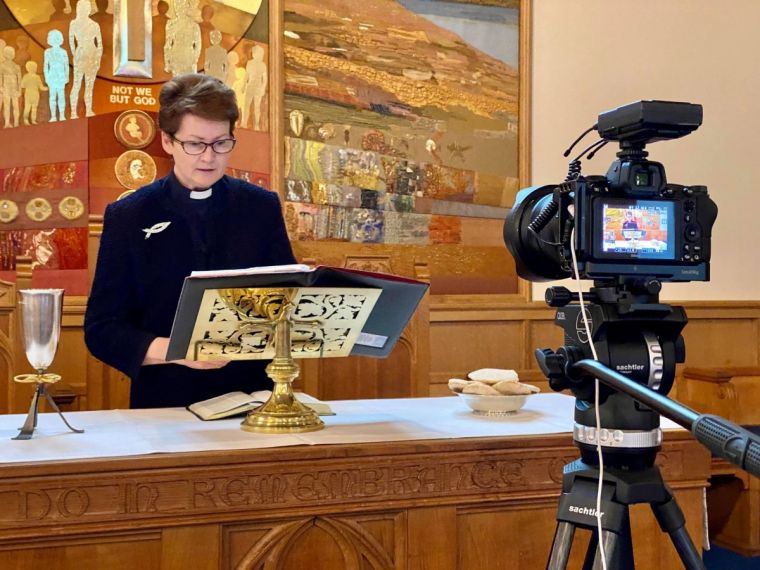Shift to online services is helping to reach those outside the Church - report

A major new report on the impact of the pandemic on Scottish churches has found doors opening to those who previously did not attend.
The report, by Churches Together in Scotland, Brendan Research, and the Scottish Church Leaders' Forum, is based on a survey of 369 church leaders from across 27 denominations.
Church leaders spoke of "paradigm shifting" and "seismic" changes as a result of Covid-19.
The shift to online worship has been the most dramatic. Prior to lockdown, fewer than one in five churches (18%) offered some kind of online worship, rising to 96% in lockdown.
Hybrid seems to be the way ahead as 82% of churches said they plan to continue offering some form of online worship in the future.
Views have also greatly increased, with church leaders who already offered online worship reporting around 1,330 views a week, growing to over 50,000 during lockdown.
"[This was] a number estimated only by leaders who completed this survey. We can expect the number
of views of worship in Scotland to be of the order of ten times this, up to half a million people," the report said, although it cautioned that online engagement could be calculated in different ways, meaning "exact numbers are harder to pin down".
The report went on to note how churches have attracted newcomers through online worship.
"Pivoting to online worship has allowed churches to reach not only their congregations, but the community at large. In addition to larger online audiences, congregational leaders reported greater interaction with those who would not normally attend worship," the report said.
Rev Mark Slaney, convener of the Scottish Church Leaders Forum, welcomed the report.
"The necessary shift to online church life has drawn us into a much wider field for mission, ministry and worship and we must learn to live a new blend and balance of engagement which could release us into new partnerships and places," he said.
Titled "Adapt and be Flexible– the Mission Doesn't Stop", the report also sheds light on the challenges faced by congregations to continue serving their communities.
Ministers reported a 43% downturn in church projects serving local communities because of legal restrictions, but at the same time, over half (51%) said they were helping more people than before the pandemic.
Over a quarter (26%) said they had increased their missional activity during the pandemic, often in partnership with other churches, the state or civic organisations.
In total, the researchers estimated that Scottish churches run 12,000 projects and initiatives for their local communities.
"The virus – and the lockdowns and restrictions that have accompanied it – have affected every part of society and caused extraordinary disruption and damage to the lives of Scots," the report said.
"The churches of Scotland have responded to the suffering and need of their communities with compassion, creativity and new missional partnerships.
"With buildings closed and normal patterns of ministry and mission disrupted, churches have innovated new practices of online worship, community service, evangelism and pastoral care."
The report found broad support for legal restrictions to curb the virus, with only 16% of church leaders saying they disapproved.
Faith also remained strong during the crisis, with a significant proportion of respondents (40%) saying their faith had actually increased, and a majority (89%) saying that faith and/or religious practice had helped people in their congregation cope with the challenges of the pandemic.
But most respondents (63%) also admitted to finding ministry more stressful during the pandemic, and one in four said they had found it more difficult to cope.
When asked why, they cited feelings of guilt for not doing enough, the struggle to balance work and life, learning new skills for online ministry, and feeling unsure about how to respond to the pandemic.
The report goes on to make a number of recommendations, among them the need to adequately resource online worship.
It also urges churches to strengthen cross-denominational partnership in mission, and not to rush back to pre-lockdown ministry and mission.
A further recommendation calls for more research to ensure that the gains are not reversed as the nation moves out of lockdown.
Mr Slaney said: "I am encouraged that the Church appears to have adapted and changed more in a period of months than over several generations.
"I trust that the research will provide more than a window on our lockdown experiences but also inspire us to move forward, rather than going back to how things were, and discover a broader, deeper contemporary offering of Christian witness, work and worship together."











